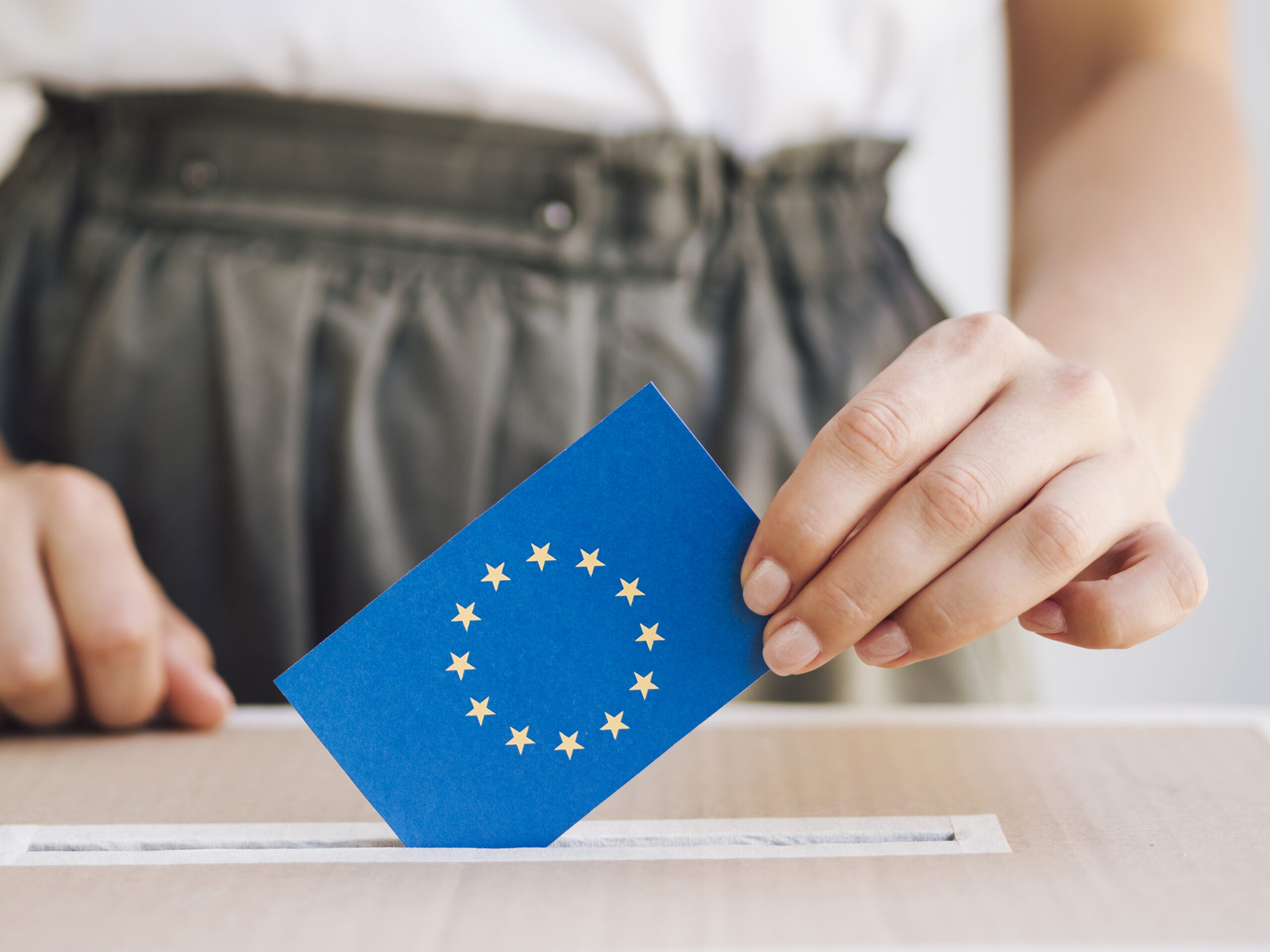Brussels, 3 April 2024 – Over 100 students and young professionals gathered on Monday, March 18, to discuss the upcoming European Parliament elections and the key issues that matter to them, from migration and participation to climate change and the rule of law. Organised by the EUandYou in partnership with the European Parliament Liaison Office in Belgium, the panel included decision-makers, policy experts and civil society activists.
With four countries allowing their citizens from the age of 16 (Belgium, Germany, Malta and Austria), the youth vote is sure to play a key role in upcoming European Parliament elections which will be held across the continent from June 6 to June 9, 2024.
Over the past five years, the political landscape in Europe has undergone significant changes, especially among the youth, with protests, digital engagement across social media, the emergence of unconventional activism forms like ‘clicktivism,’ grassroots movements, and boycotts rising.
This was reflected during discussions, with education, affordable housing, jobs, mental health, climate crisis, LGBT rights, gender equality, employment, and migration, taking centre stage during the panel.

Migration and Participation
Local perspectives play a crucial role in shaping migration and inclusion policies within the European Union, according to panellist Vanessa Cotterell, project manager at UNITEE.
Ensuring accessibility to voting and participation remains a challenge, especially for marginalised groups such as migrants and refugees who face intersecting barriers. As migrants and asylum seekers often go without access to essential services and rights like employment, healthcare, financial stability, and housing, meaningful political participation becomes difficult.
To improve participation, Cotterell gave the example of great work that can be achieved by EU initiatives, such as the MILE project, that promote civic involvement of newcomers, refugees, diaspora groups, and non-EU citizens both at the EU and local levels, that supported by targeted EU funding.
The EU has shifted its narrative in recent years, adopting a proactive and intersectional approach to migrant integration and participation, reflected in its funding priorities and project budgets. However, caution is warranted as trends like intersectionality and diversity risk becoming mere buzzwords without translating into substantive participation.
This year’s elections are important as the European Parliament plays a key role in holding EU institutions accountable for migrant rights. Campaigns must cater to young and marginalised voters, and emphasise the impact of policies on different communities. Amplifying the voices of marginalised groups and promoting their meaningful participation is essential for building a more inclusive and democratic European Union, stated Cotterell.

Climate Change
One of the central themes of the event was climate change. Suzana Carp, lead candidate for Volt Belgium and climate policy expert, emphasised the significance of youth voices in shaping climate action policies.
Carp also highlighted concerns about the potential scaling back of ambition in the European Green Deal. The latest polls predict that EU voters are turning away in their masses from Green parties due to a rise in right-leaning and populist parties.
Already the consequences of this shift have been seen, with the future of the EU’s seminal Nature Restoration Law now hanging in the balance following intense protests across the continent that resulted in the European Council failing to adopt the legislation after Member States “sabotaged” the deal in a “sudden u-turn” at the last minute.
This sentiment echoed the collective urgency felt by young Europeans towards tackling the climate crisis, with reports estimating that 85% of young voters can be moved to vote based on climate issues. This is all the more reason that young people should vote in upcoming elections to make sure that their perspectives on climate change are heard.

Rule of Law, Economics, and Digital Participation
Economic governance emerged as another critical issue. Panellist Tana Foarfă, economic and fiscal affairs advisor to Dragoș Pîslaru MEP, lamented the lack of budget allocation for youth in initiatives like the NextGenerationEU recovery plan, despite the disproportionate impact of crises like COVID-19 on young people. She stressed the need to engage youth across different regions, recognising varying levels of connection to the EU.
Sophie In’t Veld MEP drew attention to the rule of law and the imperative of preserving hard-won rights and peace in Europe. She encouraged voters not to succumb to pessimism, emphasising the power of individual agency in shaping election outcomes and upholding democratic values.
Hendrik Nahr, head of European Affairs at Make.org, highlighted the role of digital platforms in mobilising and engaging young people. Platforms like make.org offer accessible avenues for participation, facilitating dialogue and empowering youth to voice their concerns and aspirations.

Don’t Underestimate the Youth Vote
As the European Parliament election creeps closer, the youth perspective on key issues such as migration, climate change, economic governance, and the rule of law must be translated into policy through young people exercising their right to vote.
From inclusive participation, ambitious climate action, and greater budget allocation for youth initiatives, young people are deeply invested in making the future of Europe more inclusive and democratic. As elections loom, policymakers must heed these voices and prioritise issues that resonate with the youth.

Leave a Reply